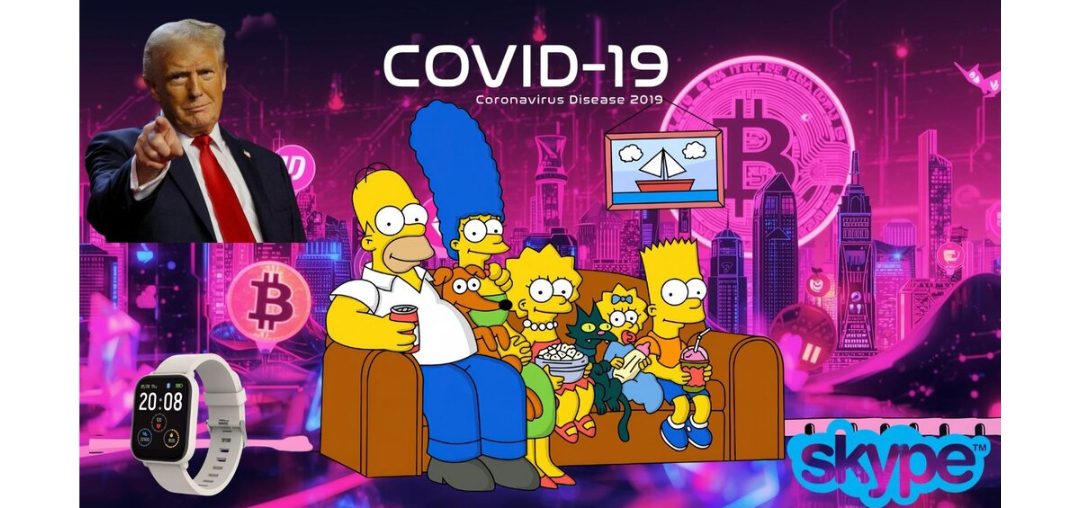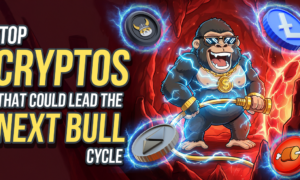For more than three decades, The Simpsons has entertained audiences with razor-sharp wit, cultural parody, and social commentary. But one recurring internet obsession overshadows even Homer’s doughnut addiction—the show’s eerie ability to predict the future.
From Donald Trump’s presidency to smartwatches and cryptocurrency, many real-world events appeared years after The Simpsons joked about them. Below is a detailed look at 10 uncanny “predictions” from The Simpsons—exploring when they happened, what the show depicted, and how reality later caught up.

1. President Donald Trump
- Episode: “Bart to the Future” (Season 11, Episode 17, aired March 19, 2000)
- Real Event: Donald Trump elected President in 2016
In this episode, a grown-up Lisa Simpson becomes President of the United States and remarks, “We inherited quite a budget crunch from President Trump.” At the time, the line was a punchy absurdist gag—Trump had floated the idea of running before but wasn’t taken seriously. Sixteen years later, fiction became fact.
While this remains The Simpsons’ most famous “prediction,” it also underscores how the show mines real-world ambition and satire, not supernatural foresight.
2. The Invention of Smartwatches
- Episode: “Lisa’s Wedding” (Season 6, Episode 19, aired March 19, 1995)
- Real Event: Smartwatches became mainstream in the 2010s
In this episode set in the future, Lisa’s fiancé uses a wristwatch to make a phone call. Decades before the Apple Watch or Samsung Galaxy Watch, the gag showcased tech imagination that eventually became everyday reality.
Like many so-called predictions, this one stems from the writers’ understanding of emerging trends in miniaturization and mobile communication, rather than clairvoyance.
3. The Rise of Video Chat
- Episode: “Lisa’s Wedding” (Season 6, Episode 19, aired 1995)
- Real Event: Video calls popularized with Skype (2003), FaceTime (2010), Zoom (2019–2020 boom)
The same episode that featured a smartwatch also depicted Lisa video-calling her mother. In 1995, video communication was more science fiction than reality. Yet within a decade, it became commonplace.
The Simpsons writers often extrapolated technological trends—what seemed absurdly futuristic at the time often turned out to be surprisingly accurate.
4. The 2014 Ebola Outbreak (Controversial Claim)
- Episode: “Lisa’s Sax” (Season 9, Episode 3, aired October 19, 1997)
- Real Event: Major Ebola epidemic (2014–2016)
In one scene, Marge offers a sick Bart a book titled Curious George and the Ebola Virus. Conspiracy theorists later resurfaced this clip, claiming it “predicted” the 2014 outbreak.
In truth, Ebola had already been discovered in 1976 and caused smaller outbreaks before 1997. The reference reflected real medical headlines of the 1990s, not prophecy. Still, it’s one of the show’s eerier moments.
5. The Rise of Cryptocurrency
- Episode: “Frinkcoin” (Season 31, Episode 13, aired February 23, 2020)
- Real Event: Bitcoin and other cryptocurrencies’ massive mainstream adoption
In this episode, Professor Frink creates a digital currency that makes him the richest man in Springfield. Later, a news ticker flashes “Bitcoin hits infinity,” a joke that went viral among crypto enthusiasts.
While The Simpsons didn’t predict Bitcoin’s exact price movements, the episode perfectly captured the speculative mania of digital assets. Crypto fans hailed it as validation that blockchain had officially entered pop culture.
It’s also worth noting that by 2020, cryptocurrencies were already well known, so rather than predicting their existence, The Simpsons lampooned their hype cycle—accurately capturing the zeitgeist of a decentralized digital gold rush.
6. Disney’s Acquisition of 20th Century Fox
- Episode: “When You Dish Upon a Star” (Season 10, Episode 5, aired November 8, 1998)
- Real Event: Disney bought 21st Century Fox in 2019
In the episode, a sign outside Fox’s studio reads: “A Division of Walt Disney Co.”—a joke about Hollywood consolidation and Disney’s family-friendly brand.
Two decades later, the joke became reality when Disney officially acquired Fox’s entertainment assets for over $70 billion. Ironically, The Simpsons is now part of Disney’s portfolio, streaming on Disney+.
7. The Discovery of the Higgs Boson
- Episode: “The Wizard of Evergreen Terrace” (Season 10, Episode 2, aired September 20, 1998)
- Real Event: Higgs boson confirmed by CERN in 2012
In this episode, Homer decides to become an inventor and scribbles equations on a chalkboard. One of those formulas, according to physicist Simon Singh, roughly predicts the mass of the Higgs boson—discovered 14 years later.
While this is likely coincidental (the writers consulted real physicists for authenticity), it’s another instance of science imitating satire.
8. The Horse Meat Scandal
- Episode: “Sweet Seymour Skinner’s Baadasssss Song” (Season 5, Episode 19, aired April 28, 1994)
- Real Event: 2013 European horse meat scandal
In a lunchroom gag, Doris the lunch lady is shown using “Assorted Horse Parts” as an ingredient for school meals. Nearly two decades later, Europe was rocked by a real scandal where beef products were found to contain horse meat.
A coincidence? Probably—but an unsettlingly specific one.
9. Voting Machine Glitches
- Episode: “Treehouse of Horror XIX” (Season 20, Episode 4, aired November 2, 2008)
- Real Event: 2012 election machine malfunction reports
In a Halloween segment, Homer attempts to vote for Barack Obama but the machine records his vote for John McCain—and then eats him. Four years later, similar glitches were reported in real-world elections, with machines misreading selections.
The Simpsons often exaggerates real concerns (electronic voting vulnerability, in this case) before they reach public consciousness.
10. Pandemic Predictions
- Episode: “Marge in Chains” (Season 4, Episode 21, aired May 6, 1993)
- Real Event: COVID-19 pandemic (2020)
This episode features a fictional “Osaka Flu” spreading through Springfield after arriving from Japan. Though The Simpsons wasn’t predicting COVID-19, viewers in 2020 noticed uncanny parallels: masks, panic buying, and vaccine chaos.
Writers have long used epidemics as plot devices—but the timing, three decades later, felt spookily relevant.
Quick Comparison: Predictions vs. Reality
| # | Predicted Event | Episode (Year) | Real Event Year | Accuracy Level | Remark |
| 1 | Trump Presidency | S11E17 (2000) | 2016 | ★★★★★ | The show’s most famous “prediction.” |
| 2 | Smartwatches | S6E19 (1995) | ~2014 | ★★★★☆ | A playful yet accurate tech forecast. |
| 3 | Video Chat | S6E19 (1995) | 2003–2010 | ★★★★☆ | Another tech trend visualized early. |
| 4 | Ebola Outbreak | S9E3 (1997) | 2014 | ★★☆☆☆ | Coincidental reference, not prophecy. |
| 5 | Cryptocurrencies | S31E13 (2020) | 2020–2025 | ★★★★☆ | Spot-on reflection of crypto culture. |
| 6 | Disney Buys Fox | S10E5 (1998) | 2019 | ★★★★★ | Joke turned corporate reality. |
| 7 | Higgs Boson | S10E2 (1998) | 2012 | ★★★★☆ | Math joke eerily close to real data. |
| 8 | Horse Meat Scandal | S5E19 (1994) | 2013 | ★★★★☆ | Oddly specific culinary coincidence. |
| 9 | Voting Glitches | S20E4 (2008) | 2012 | ★★★☆☆ | Parody that mirrored real issues. |
| 10 | Pandemic Parallels | S4E21 (1993) | 2020 | ★★★★☆ | Classic example of art imitating life. |
Why The Simpsons Seems So Psychic
After over 750 episodes, The Simpsons has produced hundreds of hours of cultural commentary. Statistically, with that much content, coincidences are inevitable. The show’s writers—often Harvard-educated and deeply engaged with politics, science, and media—spot trends long before they hit the mainstream.
In interviews, they’ve explained their process as extrapolation, not prediction. They take real developments (tech prototypes, political rumors, social issues) and imagine what they might look like in the near future. Sometimes, those imagined futures simply arrive.
A Reflection of Us, Not Prophecy
The true genius of The Simpsons lies not in predicting events but in reflecting our cultural trajectory. It distills the hopes, anxieties, and absurdities of modern life—often before they fully unfold. When one of those satirical sketches mirrors real headlines years later, it feels prophetic because the show captured the direction we were already heading.
So, the next time a viral meme claims “The Simpsons predicted it,” remember: Springfield isn’t a crystal ball—it’s a mirror held up to society.




























